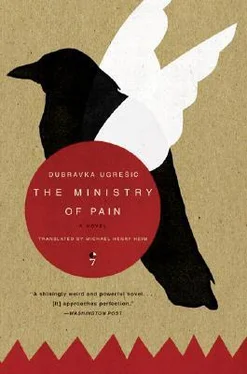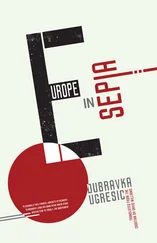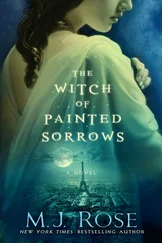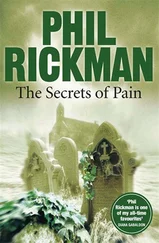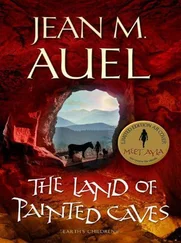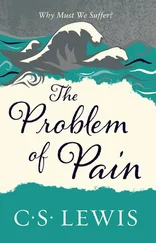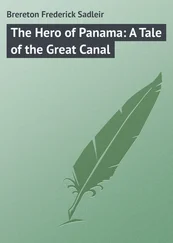Our young women are quiet. That their very existence is an embarrassment to them shows clearly on their faces. Hair hidden under kerchiefs, eyes fixed on the ground, they slip through the city like shadows. If you happen to see one in a tram, she will be hunched over a prayer book chomping the sacred syllables like so many sunflower seeds. She will soon alight, looking neither right nor left, and scurry off, still mouthing the text, her lips in constant motion, like a camel’s.
Our beetle-browed men congregate around turquoise-domed concrete mosques that look more like day-care centers than places of worship. In summer they squat against their mosque, scratching their backs on its walls and seeking relief from the heat (though there is no sun). They mill about, sniffing at one another, circling the mosque, hands behind backs, pausing, shifting their weight from one foot to the other, patting one another on the back, embracing when they meet, embracing when they part, and when on special holidays the mosque is full to overflowing they overflow onto the asphalt and kneel there facing east. Like a dog its bone, our men gnaw their mosque from dawn till dusk.
And when the sky comes down so low that it touches our heads, when the barometer sinks and the air is so humid we breathe through gills, then our bodies grow heavy and fall to the bottom, where there are no zones, where we crawl about on all fours, spent like fish after spawning. And only there, at rock bottom, do our scales graze one another, do our fins meet as we pass, do we press our gills to those of another.
We are barbarians. We have no writing; we leave our signatures on the wind: we utter sounds, we signal with our calls, our shouts, our screams, our spit. That is how we mark our territory. Our fingers drum on everything they touch: dustbins, windowpanes, pipes. We drum, therefore we are. We make rackets, rackets as painful as toothaches. We bawl at weddings and wail at funerals, our women’s convulsive voices battering the concrete façades like tempests. We break glasses and go bang: firecrackers are our favorite toy. Sound is our alphabet, the noise we produce being the only proof that we exist, our bang the only trace we leave behind. We are like dogs: we bark. We bark at the lowering gray sky weighing down on our heads.
We are sleepers. The members of our tribe bear the invisible stamp of Columbus on their foreheads. We travel west and end up east; indeed, the farther west we go the farther east we get. Our tribe is cursed. Returning to the lands whence we came spells our death; remaining in the lands whither we have come spells defeat. Hence the endless repetition, in our dreams, of the departure sequence, the moment of departure being our only moment of triumph. Sometimes during our short walk home from the mosque we are overcome by sleepiness and find a bench beneath a tree doing its best to grow. The air is moist and warm, the neon moon full, the night sky navy blue. And so we fall asleep in the concrete oasis under the concrete tree and rerun the departure sequence for the umpteenth time. We take up our tents, hoist our bags on our back, and up comes a gale and churns the desert sand, and our silhouettes start to fade, and we vanish altogether in the thick curtain of sand.
I stood, pulled down the first video that came to hand, and popped it into the VCR. Then I went back to the couch, gave the spread enough of a shake to send the scraps of wallpaper that had alighted on it to the floor, and lay down….
It was Philip Kaufman’s adaptation of Kundera’s Unbearable Lightness of Being . I had read the novel twice. Besides, I had my doubts about cinematic adaptations of literary works: even the best seemed unworthy of their models. The very first frames put me on my guard: Daniel Day-Lewis and Juliette Binoche may have looked more Czech than many Czechs, but Binoche was trying to speak English with a Czech accent and the only words she got right were Anna Karenina . I was also put off by the way the film poeticized everyday Communist reality: the effective shots of ugly naked bodies in a shroud of steam or old men playing chess in a swimming pool, the scenes of run-down Czech spas (which could well have been in Croatia) and Prague streets (so reminiscent of Zagreb). Perhaps my irritation resulted from the reflex reaction (What can they know about us? ) that I had heard so many times and that was merely the arrogance of the colonized and thus of no more consolation than the arrogance of the colonizers. In that scheme of things the perfectly innocent Kaufman became the colonizer of the territory that only I at that moment had the right to inhabit.
But when the black-and-white documentary footage of the Russian occupation of Czechoslovakia came on the screen, when I saw the Russian tanks entering Prague, the scenes of protest and violence in the streets culminating in the close-up of a Russian soldier aiming his revolver at the onlookers, including Binoche, I was, well, bowled over. That revolver was aimed at me. Binoche, who had been skillfully inserted into the footage and was frantically snapping pictures of the tanks, no longer got on my nerves. Not only had the film suddenly become “authentic” it had become personal, my “personal story.” Or so I felt, at least. And I felt the tears running down my cheeks.
What was going on? I wondered. I was only six when the Russians invaded Czechoslovakia, so there was no way I could purely and simply identify with the story. I embarked on a round of feverish calculations: if, as the liner notes told me, Kundera’s novel came out in 1984 and Kaufman’s film was shot in 1987, then the film dates from two years before the fall of the Berlin Wall and four years before the outbreak of the war in Yugoslavia, which means I could have seen it (though I did not) in Zagreb. My head started swimming from the pointless calculations, and before I knew it I had completely lost my way in time. I was like those Japanese soldiers left behind in the Philippine jungles after the War and who, when found, thought the War was still going on. I’d jumbled up everything — time frames, camera frames — and was incapable of sorting it out. What had taken place far in the past now seemed recent, and the most recent events had moved back in time. My only point of reference seemed to be that dated video. I looked around like a shipwrecked sailor newly washed ashore. I was in a flat not my own in a city not my own in a country not my own, surrounded by crumbling walls and the smell of must. The remote control in my hand was still working, but the batteries in my internal control mechanism had gone dead: no amount of button pushing could get me going. I wondered when the things that had happened had found time to happen and what made me experience Kaufman’s movie as if it were CNN’s lead item for the day and the fragile Dayton Agreement, signed only two years previously, as if it were ancient history to which I could afford to be supremely indifferent.
The blow I had just received proved much more complicated than it had seemed at first. Words like “phantom limb syndrome” or “nostalgia” are arbitrary lexical labels meant to denote the complex emotional blow that comes of loss and the impossibility of return. They imply that it makes virtually no difference whether we make our peace with the loss or experience relief at being able to let go of the past or of the desire to return to it. Because the blow does not lose its intensity thereby. Nostalgia, if that is the word for it, is a brutal, insidious assailant who favors the ambush approach, who attacks when we least expect him and goes straight for the solar plexus. Nostalgia always wears a mask and, oh, irony of ironies, we are only its chance victim. Nostalgia makes its appearance in translation — most often a bad one — after a complicated journey not unlike the children’s game “telephone.” The words the first player whispers into the ear next to him pass through a whole chain of ears until it emerges from the mouth of the last player like a rabbit out of a magician’s hat.
Читать дальше
